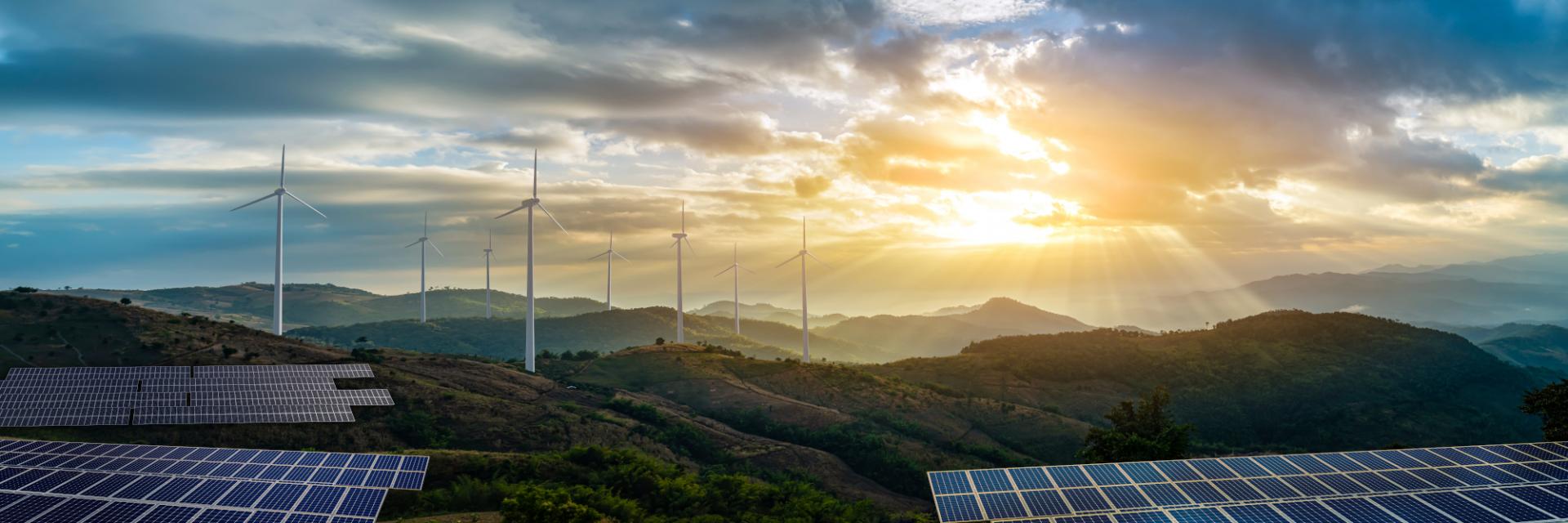Addis Ababa, 9 May 2025 – Between the 21 April and 9 May 2025, the Economic Commission for Africa (ECA) in collaboration with various international and regional partners conducted training for 66 experts on energy modeling tools to build efficient energy systems as Africa accelerates its transition to low-carbon and climate-resilient development.
Co-convened by the ECA and the Climate Compatible Growth (CCG), the Energy Modelling Platform for Africa (EMP-A) is a capacity building initiative designed to create optimized investments for the energy transition in Africa and to meet its growing demand for low-carbon development.
On behalf of ECA, Ms. Mekalia Paulos, Research Officer: Energy Transition & Climate Finance, stated that the EMP-A was held at a time when African countries find themselves at a critical juncture as global decarbonization efforts gain pace, coupled with increased calls for a holistic, system-wide shift towards low carbon development pathways.
“As Africa strives to meet the considerable energy requirements of its rising population, attain the SDGs as well as realize its industrialization ambitions enshrined in Agenda 2063, the urgent need for strategic long term energy planning cannot be more essential”, said Ms. Mekalia. “Harnessing the open-source modelling tools the EMP-A offers can support African governments analyze policies and challenges specific to their respective countries in such a way as to ensure their energy resources meet national imperatives towards sustainability and climate-resilient growth. Without effective, long-term energy planning, it will not be possible to mobilize the requisite finances for the energy transition.”
The CCG programme is funded by the UK’s Foreign, Commonwealth and Development Office (FCDO) to support investments in sustainable energy and transport systems, with a view to meeting development priorities in the Global South.
The EMP-A training program brought together experts from across the African continent and beyond to delve deeper into the challenges and opportunities the energy transition presents, as well as share perspectives on how data and the modelling tools provided by the EMP-A can inform countries’ respective transition plans. There was consensus on the urgent need for African voices to converge in the development of nuanced energy transition and crucially, the urgent need for strengthened international cooperation, increasing concessional finance and de-risking facilities which will be pivotal for amplifying private investment on the continent. Notably, mobilizing domestic sources of capital and local currency funding will be vital.
Thomas Ageebee, from the Energy Commission of Nigeria, stated that “the EMP-A training has been an incredibly enriching and rewarding experience. I have gained practical skills in geospatial energy planning, multi-criteria decision analysis, and dataset management, tools that will significantly enhance my work at the Energy Commission of Nigeria. The focus on open-source modelling tools and context-specific approaches has equipped me with the skills needed to advance Nigeria’s energy transition and contribute to a sustainable energy future for Africa. I’m excited to take back these skills and apply them in my current role, contributing to climate-compatible energy strategies and policy support.”
Mouna Ben Ahmen, from the University of Tunis El Manar, Tunisia said “I dived deeply into the Tunisian electricity system using OSeMOSYS learning to build and analyze long-term energy scenarios, strengthen data research and handling skills, interpreting results critically, and approaching energy planning from the perspective of existing world challenges. I’m returning home with renewed motivation, new skills, and meaningful connections.”
From the University of Energy and Natural Resources, Ghana, Mathew Atinsia, stated that “the emphasis on modeling investment scenarios and evaluating financial performance provided me with a clearer understanding of how to assess the financial feasibility of sustainable energy projects. Additionally, the interactive sessions and real-world case studies offered valuable insights into applying FINPLAN to projects within the Ghanaian energy context.”
Kifle Godana Heyi, from the Jimma Institute of Technology, Ethiopia, said that “I was able to strengthen my skills in energy system modeling, data analysis, and scenario development, and gained valuable experience in assessing renewable energy integration and storage technologies, designing sustainable energy pathways that are directly applicable to real-world policy and development challenges.”
Improving energy access in Africa in the context of SDG#7 goals requires game-changing policies and investment. The goal should be pursued within the context of a transitioning energy system that leverages the continent’s immense clean energy potential while phasing-out carbon-intensive technologies and resources.
Following the first EMP-A training that took place in 2018 in Addis Ababa, the annual EMP-A training continues to gain interest and momentum in the region, with increasing number of participants each year. The 2025 iteration is the sixth, during which African experts were trained on an expanded set of 8 tracks, namely OsEMosys, OnSSET, CLEWs, FinPlan, MAED, Energy Access Explorer, MicrogridsPy and NISMOD-CR.
The course attracted participants from all five sub-regions of the continent, including island states, notably the Democratic Republic of Congo, Ethiopia, Ghana, Kenya, Madagascar, Malawi, Mauritania, Mozambique, Niger, Nigeria, Rwanda, Sierra Leone, South Africa, Tanzania, Tunisia, Uganda and Zambia.
Further information is available at: https://www.uneca.org/eca-events/EMP-A-2025
Issued by:
Communications Section
Economic Commission for Africa
PO Box 3001
Addis Ababa
Ethiopia
Tel: +251 11 551 5826
E-mail: eca-info@un.org

